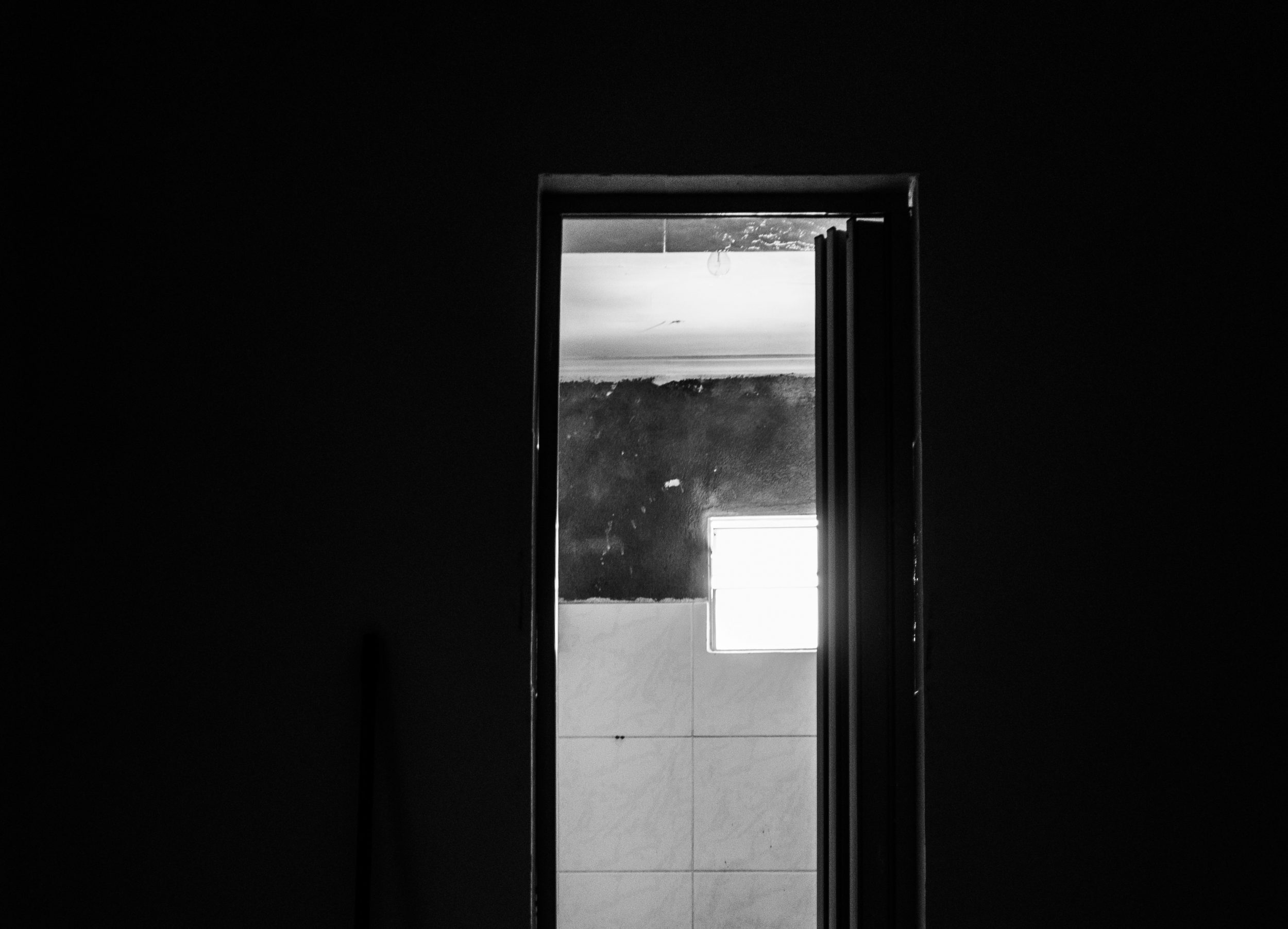I was released from Louisiana State Prison at the age of seventy on March 30, 2023. I had served forty-seven years of a life sentence, and though I’d hoped to be released, it was still unexpected when it happened. Upon my release, I was lucky to be taken in by the Louisiana Parole Project (LPP), a nonprofit organization dedicated to supporting reentry efforts for formerly incarcerated individuals. Due to how long I had been in prison, I was categorized as a “long-term” releasee, qualifying me for a guaranteed year of housing through LPP, during which time I was theoretically meant to get on my feet.
However, because of my age, I am unable to work. This has meant being entirely reliant on a Supplemental Security Income totaling $943 a month, insufficient for my survival needs. This limited income—and the challenges of finding acceptance in society after a lifetime incarcerated—made it challenging to secure housing outside of the LPP program, which is designed only to be a bridge, not a permanent solution.
My journey underscores the harsh realities faced by many long-term incarcerated individuals reentering society. Particularly for older individuals, it is a struggle to transition from a carceral environment to independent living. Almost all reentry programs envision an individual who is able to work, and thus support themselves financially, as they strive to reintegrate into society. This emphasizes the importance of comprehensive support systems in addressing the complex needs of released prisoners and facilitating successful reentry into the community.
In the following, I offer an account of my experiences during my first year on the outside, and share some of the ways that, contrary to stereotypes, formerly incarcerated people—particularly those who are elderly—represent a uniquely vulnerable population.
March 30, 2023, started pretty much like any other day, except that I hoped, for the first time in a long time, that something might change. I had a court hearing late that morning because a Supreme Court decision, Evangelisto Ramos v. Louisiana, had reopened my case. Still, the suddenness was a shock: at 12:30 p.m., I was suddenly a free man. No more bars, no more grim metronome ticking away every moment of my life.
Leaving the prison walls behind felt like stepping out of a time machine. The world outside had shifted from dull to Technicolor! Tall buildings reaching for the sky, shiny stuff like chrome and glass catching the sunlight, and noise everywhere: car horns, laughter. It was overwhelming, exciting, and kind of scary all at once.
Decarceral thinkers and doers
Every week, Inquest aims to bring you insights from people thinking through and working for a world without mass incarceration.
Sign up for our newsletter for the latest.
Newsletter
First challenge: figuring out this crazy new world. Technology was everywhere. Everyone had these glowing smartphones, ATMs were like magic money machines, and self-driving cars roamed around like ghost rides. I felt like a leftover from a different era, squinting in the bright lights of the twenty-first century.
Finding a place to crash was the next hurdle. The Louisiana Parole Project, even though I wasn’t technically on parole, took me in. But my past, as dark and unsettling as any tattoo, made landlords shut the door in my face. The label of “ex-convict” stuck to me like gum on a shoe, a constant reminder of the life I wanted desperately to leave in the dust. Nights were spent at the Parole Project’s apartment, with the fear of being homeless gnawing at me. But I wasn’t ready to throw in the towel.
That tiny flame of hope, still hanging in there, hadn’t flickered out.
I signed up for rehab programs—including for basic skills like learning how to use a cellphone—to bridge the gap between my past and this new world. I devoured books like I was starved for knowledge, trying to make sense of this crazy place. A buddy had hooked me up with a laptop computer and I lived on YouTube, searching it for tech knowledge. I swallowed my pride and took up odd jobs—anything honest I could find—to prove to the world (and myself) that I was worth more than my past.
Slowly but surely, those barriers started to crack. A sweet social worker tried to help me find a decent place, though rejection still knocked more often than acceptance. Mentors showed up, like undercover angels, guiding me through the maze of rejoining society. Then there were things like Social Security, Medicaid, and Medicare—benefits that helped, but also hoops that needed jumping through. Each one that I managed to figure out was a tiny victory. It was proof that I was making progress, a real-life nod to my second chance.
Life wasn’t a cakewalk. Loneliness was my shadow, the absence of family a hole in my heart. Everyone I had known had passed on, leaving me frozen in time while the world outside zoomed on ahead. But slowly, I started making new connections. Maybe-friends turned into real buddies, hesitant smiles gave way to laughter, and that feeling of belonging, once a stranger, started to feel like home.
The danger of homelessness constantly hung over my head, though. What would I do when my year of housing with the Louisiana Parole Project came to an end? I had already had the door slammed in my face more than once. I had nowhere to turn, no safety net that would catch me if I fell. What would I do? Homelessness often turns into recidivism—and I would not go back to prison, that was for sure. I wasn’t willing to commit another crime to avoid sleeping in the streets. So, what next?
Good news came in the form of a phone call from the executive director of the Louisiana Parole Project, Andrew Hundley. He told me that, if worst came to worst, I could stay as long as I needed to.
In the meantime, I had made a new online friend whom I knew, for a while, only as “@IncarcerNation.com.” Their website is a public database of people killed during encounters with police. For a while we only talked online; I thought I was talking to a guy. This turned out to be an incorrect assumption: @IncarcerNation.com was a woman, I learned when we finally talked on the phone. And, after several phone calls, she invited me to come to Florida to stay with her and her husband.
I thought on this offer for a long time. Should I? What was their motivation for inviting me? Were they going to scam me, or hurt me? Was I making a mistake? Would I survive? Would I thrive? And that’s what I wanted—no, needed—to do: thrive.
During the last week of December, I talked with both of them. I told them that they needed to remember that, once I committed to the move, I would basically be homeless. They managed to put my mind at ease. By the end of the conversation, we’d agreed that I would make the move.
We agreed on a move date—January 2—and my friend, Lenny, who had a car, drove me to the bus station. I had even had to learn how to navigate the Internet to buy a bus ticket! I finished up my packing and prepared for my move. I had accumulated ten large moving boxes of stuff that I would not leave behind. (When you’re accustomed to living out of two metal locker boxes and a laundry bag, ten boxes seems like a lot.)
I boarded the Greyhound bus at 3:00 a.m., and the journey was torture: fourteen hours of travel from Baton Rouge, Louisiana, to Tallahassee, Florida. We had made arrangements for Robert (the husband) to meet me at the bus station and pick me up. I grew more scared the closer the bus got to Tallahassee. It was such an unknown! I had absolutely no idea how to act or whom I was meeting or what to do.
Would we get along, or be bitter enemies?
As it turned out, I need never have feared. I had only seen one photograph of Robert, and he had seen none of me, but we immediately recognized each other as I stepped down from the bus. We shook hands warmly, and we immediately went to a nearby restaurant and ordered takeout for me, him, and his wife. When we arrived back at their home, it was almost as if I had always lived there.
We had dinner on plates in the living room, and a bottle of wine, and, as I was exhausted from the journey, I immediately went to bed—in my bedroom. After two days with them, they loaned me their truck to drive back to Baton Rouge to pick up my belongings, and I set out on a Monday. The drive was about nine hours. When I arrived in Baton Rouge, everybody was just as excited to see me as I was them.
I spent two nights there in my old room, reminiscing, thinking of the new life I had found, and planning on the future I might have. I told all my friends—especially Andrew, the Parole Project’s executive director, who had given me my freedom—goodbye. The night before leaving, I went out for dinner with my friend Panos, a fellow veteran who had been released from prison a year earlier. Then, the next morning, I got up and drove the nine hours back to Tallahassee, ready to face my future.
I’ve been here in Tallahassee for five months now. Life is good. My rescuers operate an animal shelter. At the moment, they’re in Europe on a vacation. I am responsible for feeding and caring for eleven cats and five dogs. I am so happy that they trust me with their house, their animals, everything. They’ll be back in three days, and I will have proven myself. I will have climbed past the threshold of homelessness.
The journey’s far from over. Every day brings fresh challenges—new chances to prove I’m worthy of this second shot. But the fear that used to loom over me like a drill sergeant has faded, replaced by a cautious hope. I see the scars of my past now not as marks of shame, but as guides pointing me toward a brighter tomorrow.
My story’s not special. It’s like a zillion others—folks stepping out of the shadows, squinting in the sunlight, finding their path back into society. It is the story of a thousand ex-convicts released from prison with no family, no friends, no support network, no money. It’s a tale of human strength, our ability to bounce back and redeem ourselves. It’s a story that needs to be heard, not with pity, but with love and support.
For the whole wide world, accepting those who’ve paid their dues isn’t just kind, it’s smart. Each ex-convict who gets back on track is a possible threat dodged, a life turned around, a tax-paying citizen pitching in for the greater good. It’s an investment in a safer, fairer society for all of us.
So, next time you hear about someone getting out of the clink, think of my story. Remember the ups, the downs, the victories. Remember that behind the “ex-con” label is a beating heart, longing for a chance to fit in, to contribute, to live.
What does the next year or two hold in store? I have no clue. But one thing I know for sure: it’s not heading back to prison. It’s all about making change in the world of mass incarceration, about giving folks another shot. It’s a journey you’ve got to join.
Image: Wesley Pacifico/Unsplash

